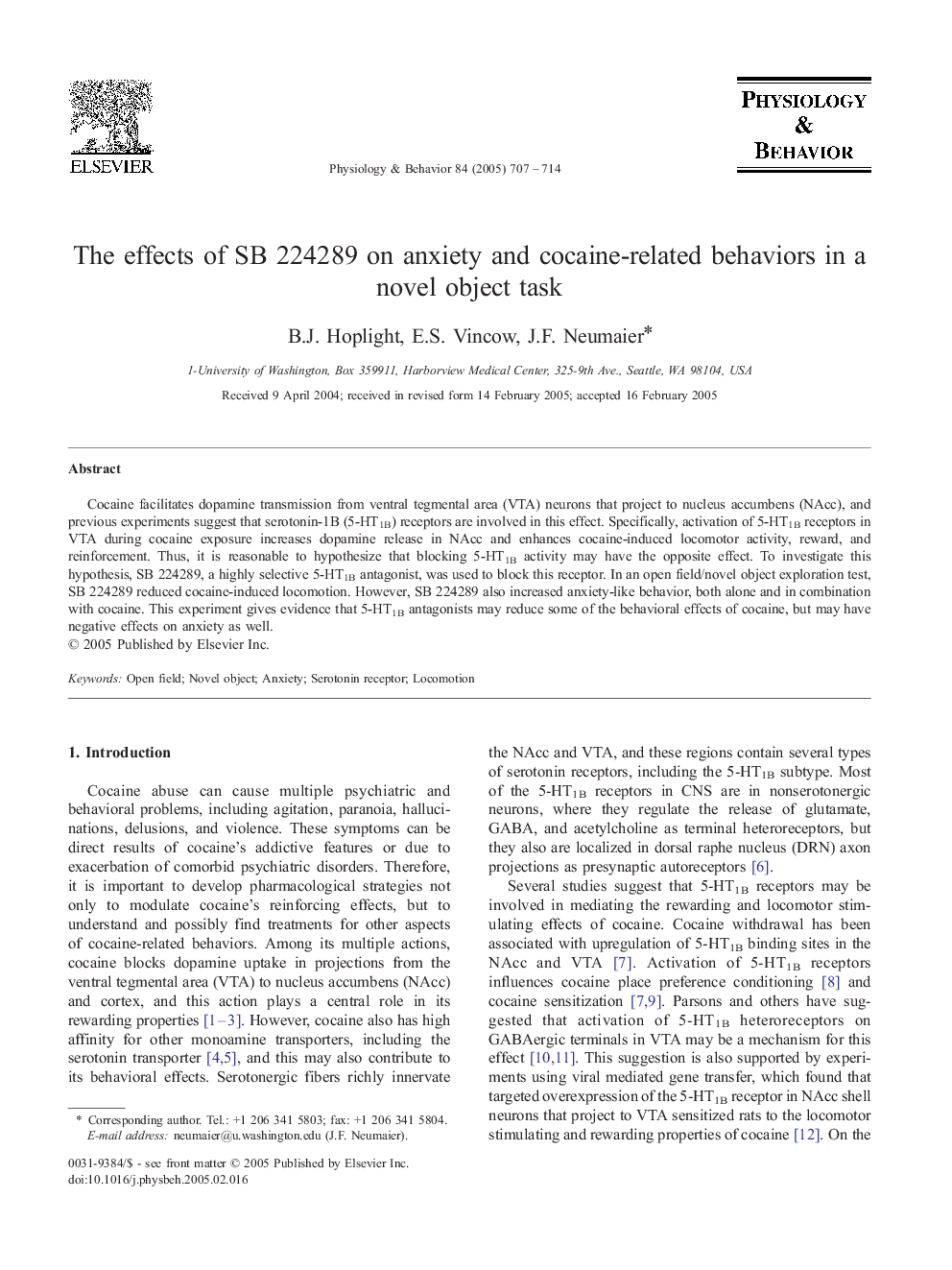| Article ID | Journal | Published Year | Pages | File Type |
|---|---|---|---|---|
| 9149604 | Physiology & Behavior | 2005 | 8 Pages |
Abstract
Cocaine facilitates dopamine transmission from ventral tegmental area (VTA) neurons that project to nucleus accumbens (NAcc), and previous experiments suggest that serotonin-1B (5-HT1B) receptors are involved in this effect. Specifically, activation of 5-HT1B receptors in VTA during cocaine exposure increases dopamine release in NAcc and enhances cocaine-induced locomotor activity, reward, and reinforcement. Thus, it is reasonable to hypothesize that blocking 5-HT1B activity may have the opposite effect. To investigate this hypothesis, SB 224289, a highly selective 5-HT1B antagonist, was used to block this receptor. In an open field/novel object exploration test, SB 224289 reduced cocaine-induced locomotion. However, SB 224289 also increased anxiety-like behavior, both alone and in combination with cocaine. This experiment gives evidence that 5-HT1B antagonists may reduce some of the behavioral effects of cocaine, but may have negative effects on anxiety as well.
Related Topics
Life Sciences
Biochemistry, Genetics and Molecular Biology
Physiology
Authors
B.J. Hoplight, E.S. Vincow, J.F. Neumaier,
